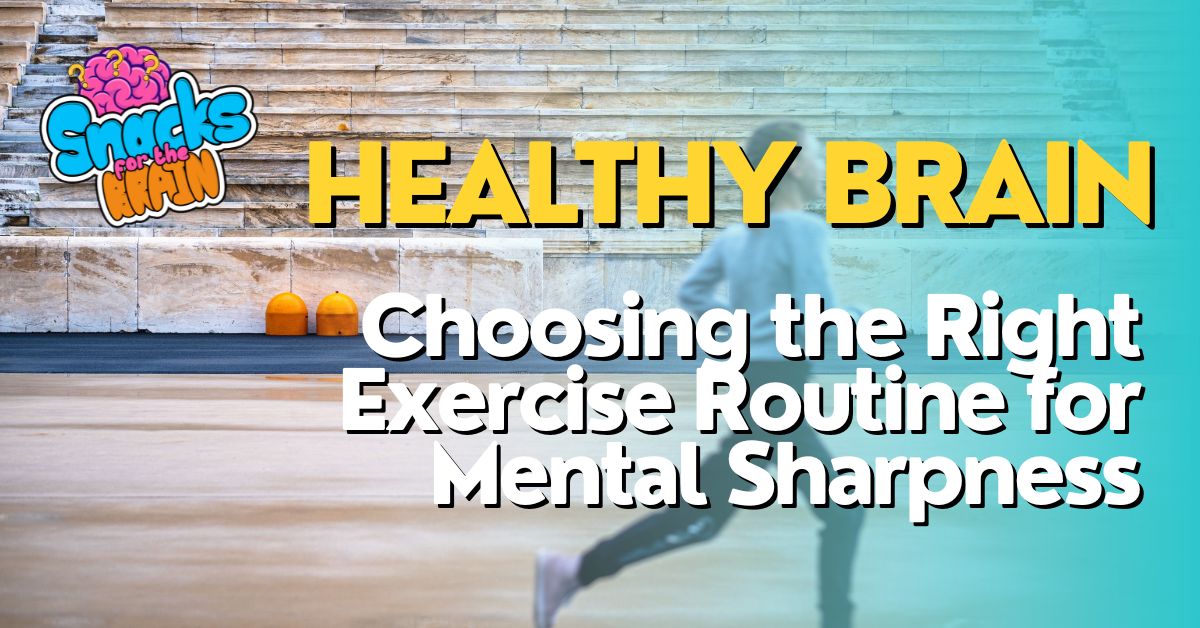Lifelong learning refers to the continuous pursuit of knowledge and skills throughout one’s life. It is a proactive approach to personal growth and development that goes beyond formal education. Lifelong learning is important for brain health because it keeps the mind active and engaged, which can help prevent cognitive decline and improve overall brain function.
There are various types of lifelong learning activities that individuals can engage in. These include reading books, taking classes or workshops, attending lectures or seminars, participating in online courses, learning a new language or musical instrument, engaging in hobbies or crafts, and traveling to new places. The key is to engage in activities that challenge the brain and promote continuous learning.
Key Takeaways
- Lifelong learning can improve brain health and cognitive function.
- The science behind brain health and lifelong learning shows that the brain is capable of change and growth throughout life.
- Cognitive benefits of lifelong learning include improved memory, attention, and problem-solving skills.
- Emotional benefits of lifelong learning include reduced stress and increased self-esteem.
- Social benefits of lifelong learning include increased social connections and a sense of purpose.
The Science Behind Brain Health and Lifelong Learning
The brain is a complex organ that controls all of our thoughts, emotions, and actions. It is made up of billions of neurons that communicate with each other through electrical signals. As we age, the brain undergoes changes that can affect its function. However, research has shown that the brain has the ability to change and adapt throughout life, a concept known as neuroplasticity.
Neuroplasticity refers to the brain’s ability to reorganize itself by forming new neural connections. This means that even as we age, our brains have the potential to learn new things and acquire new skills. Lifelong learning plays a crucial role in promoting neuroplasticity by providing the brain with new challenges and stimuli.
Cognitive Benefits of Lifelong Learning
Engaging in lifelong learning activities can have numerous cognitive benefits. It can improve memory by challenging the brain to retain and recall information. For example, reading books or taking classes that require memorization can help strengthen memory skills. Lifelong learning can also enhance problem-solving skills by encouraging individuals to think critically and find creative solutions to challenges.
Furthermore, lifelong learning can improve cognitive flexibility, which is the ability to switch between different tasks or perspectives. This can be particularly beneficial in today’s fast-paced and ever-changing world. By engaging in diverse learning activities, individuals can train their brains to adapt to new situations and think more flexibly.
Emotional Benefits of Lifelong Learning
Lifelong learning is not only beneficial for cognitive function but also for emotional well-being. Engaging in learning activities can reduce stress and improve overall mental health. When we learn something new, our brains release dopamine, a neurotransmitter that is associated with pleasure and reward. This can create a sense of accomplishment and boost self-esteem.
Additionally, lifelong learning can provide individuals with a sense of purpose and fulfillment. It allows them to pursue their passions and interests, which can lead to greater satisfaction in life. Learning new skills or acquiring knowledge can also increase self-confidence and improve self-efficacy, the belief in one’s ability to succeed.
Social Benefits of Lifelong Learning
Lifelong learning can also have significant social benefits. Engaging in learning activities provides opportunities for networking and making new friends. For example, taking classes or attending workshops allows individuals to connect with like-minded people who share similar interests.
Furthermore, lifelong learning can help individuals stay socially connected as they age. It provides opportunities for social interaction and engagement, which are important for maintaining mental and emotional well-being. By participating in group activities or joining clubs or organizations related to their interests, individuals can expand their social networks and combat feelings of isolation or loneliness.
Lifelong Learning and Memory Retention

One of the key benefits of lifelong learning is its positive impact on memory retention. Engaging in activities that challenge the brain can help improve memory function and prevent age-related memory decline. There are various techniques that can be used to enhance memory retention.
Repetition is one such technique that involves repeating information or tasks over time. This helps reinforce neural connections in the brain and improve memory recall. Another technique is association, which involves connecting new information to existing knowledge or creating mental images to aid in memory retrieval.
Lifelong Learning and Brain Plasticity
Lifelong learning is closely linked to brain plasticity, the brain’s ability to change and adapt. By engaging in new and challenging activities, individuals can promote brain plasticity and enhance neural connections. Learning a new language or musical instrument, for example, requires the brain to form new neural pathways and strengthen existing ones.
Brain plasticity exercises can be incorporated into daily routines to promote continuous learning. These exercises can include solving puzzles or brainteasers, playing memory games, or engaging in activities that require multitasking or problem-solving. By regularly challenging the brain, individuals can keep their minds sharp and promote long-term brain health.
Lifelong Learning and Mental Health
Lifelong learning has been shown to have positive effects on mental health. Engaging in learning activities can reduce the risk of depression and anxiety by providing individuals with a sense of purpose and fulfillment. It can also help individuals cope with stress and improve overall well-being.
Learning new skills or acquiring knowledge can boost self-confidence and self-esteem, which are important factors in maintaining good mental health. Lifelong learning can also provide individuals with a sense of control over their lives, as it allows them to actively pursue personal growth and development.
Lifelong Learning and Age-Related Cognitive Decline
Age-related cognitive decline is a natural part of the aging process. However, lifelong learning can help slow down this decline and reduce the risk of developing age-related cognitive disorders such as dementia and Alzheimer’s disease. By keeping the brain active and engaged, lifelong learning promotes cognitive reserve, which is the brain’s ability to compensate for age-related changes.
Engaging in diverse learning activities can help build cognitive reserve by strengthening neural connections and increasing brain efficiency. It can also help individuals maintain cognitive function and independence as they age. By continuously challenging the brain, individuals can reduce the risk of cognitive decline and improve overall brain health.
Practical Tips for Incorporating Lifelong Learning into Your Life
Incorporating lifelong learning into daily routines doesn’t have to be difficult. Here are some practical tips to get started:
1. Set aside dedicated time for learning: Schedule regular time in your day or week specifically for learning activities. This could be as little as 15 minutes a day or a few hours a week.
2. Find activities that you enjoy: Choose learning activities that align with your interests and passions. This will make the learning process more enjoyable and motivating.
3. Start small and gradually increase difficulty: Begin with activities that are manageable and gradually challenge yourself with more complex tasks or subjects.
4. Mix it up: Engage in a variety of learning activities to keep your brain stimulated. This could include reading books, taking online courses, attending workshops or lectures, or learning a new hobby or skill.
5. Make it social: Join clubs or organizations related to your interests to connect with others who share similar passions. This can provide opportunities for social interaction and networking.
Lifelong learning is essential for brain health and overall well-being. By engaging in continuous learning activities, individuals can improve cognitive function, enhance memory retention, promote brain plasticity, and reduce the risk of age-related cognitive decline. Lifelong learning also has emotional and social benefits, such as reduced stress, increased self-esteem, and improved social connections.
Incorporating lifelong learning into daily routines doesn’t have to be daunting. By setting aside dedicated time for learning, finding activities that align with your interests, starting small and gradually increasing difficulty, mixing up the types of activities, and making it social, you can easily incorporate lifelong learning into your life. So why wait? Start your lifelong learning journey today and reap the numerous benefits for your brain health and overall well-being.
If you’re interested in expanding your knowledge and improving your brain health through lifelong learning, you may also find the article «Comment prendre des notes de livres» (How to Take Book Notes) on Intelligence Snacks & Hacks website helpful. This article provides valuable tips and techniques for effectively taking notes while reading books, which can enhance your learning experience and retention of information. Check it out here!
FAQs
What is lifelong learning?
Lifelong learning refers to the continuous pursuit of knowledge and skills throughout one’s life, beyond formal education.
What are the benefits of lifelong learning for brain health?
Lifelong learning has been shown to improve cognitive function, memory, and overall brain health. It can also reduce the risk of cognitive decline and dementia in older adults.
How does lifelong learning improve brain health?
Lifelong learning stimulates the brain by creating new neural connections and strengthening existing ones. It also promotes neuroplasticity, which is the brain’s ability to adapt and change in response to new experiences.
What types of activities count as lifelong learning?
Lifelong learning can include a wide range of activities, such as reading, taking classes or workshops, learning a new language, playing an instrument, or engaging in hobbies that require mental stimulation.
Is it ever too late to start lifelong learning?
No, it is never too late to start lifelong learning. The brain has the ability to change and adapt throughout one’s life, regardless of age or previous education.
Can lifelong learning benefit people with cognitive impairments?
Yes, lifelong learning can benefit people with cognitive impairments, such as those with Alzheimer’s disease or other forms of dementia. It can help slow the progression of cognitive decline and improve overall quality of life.






